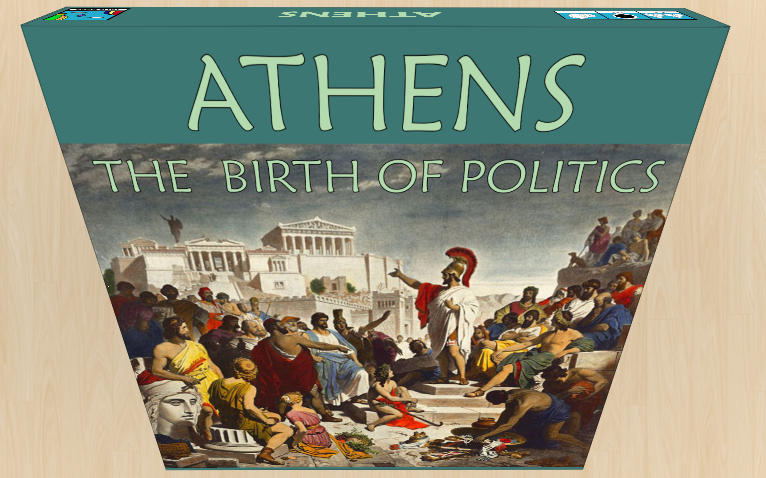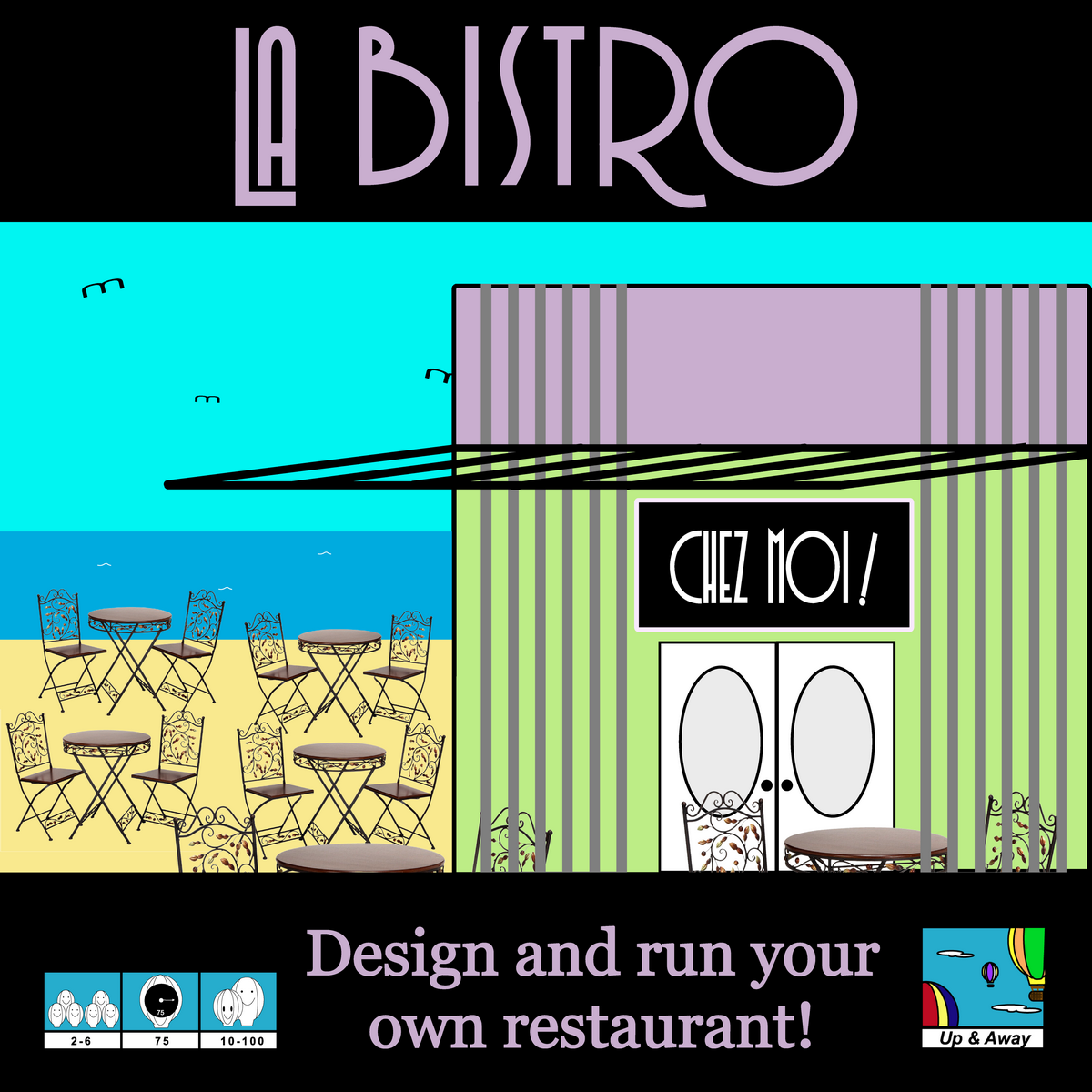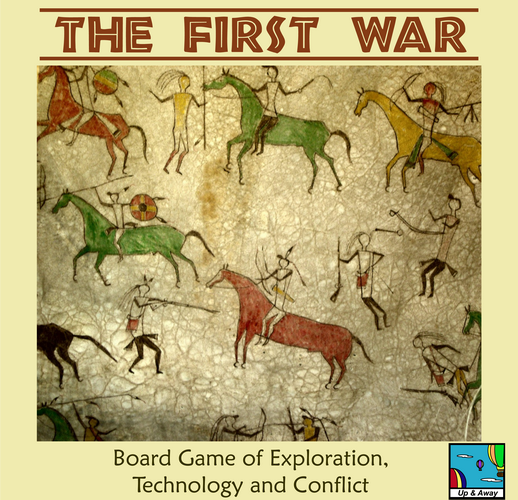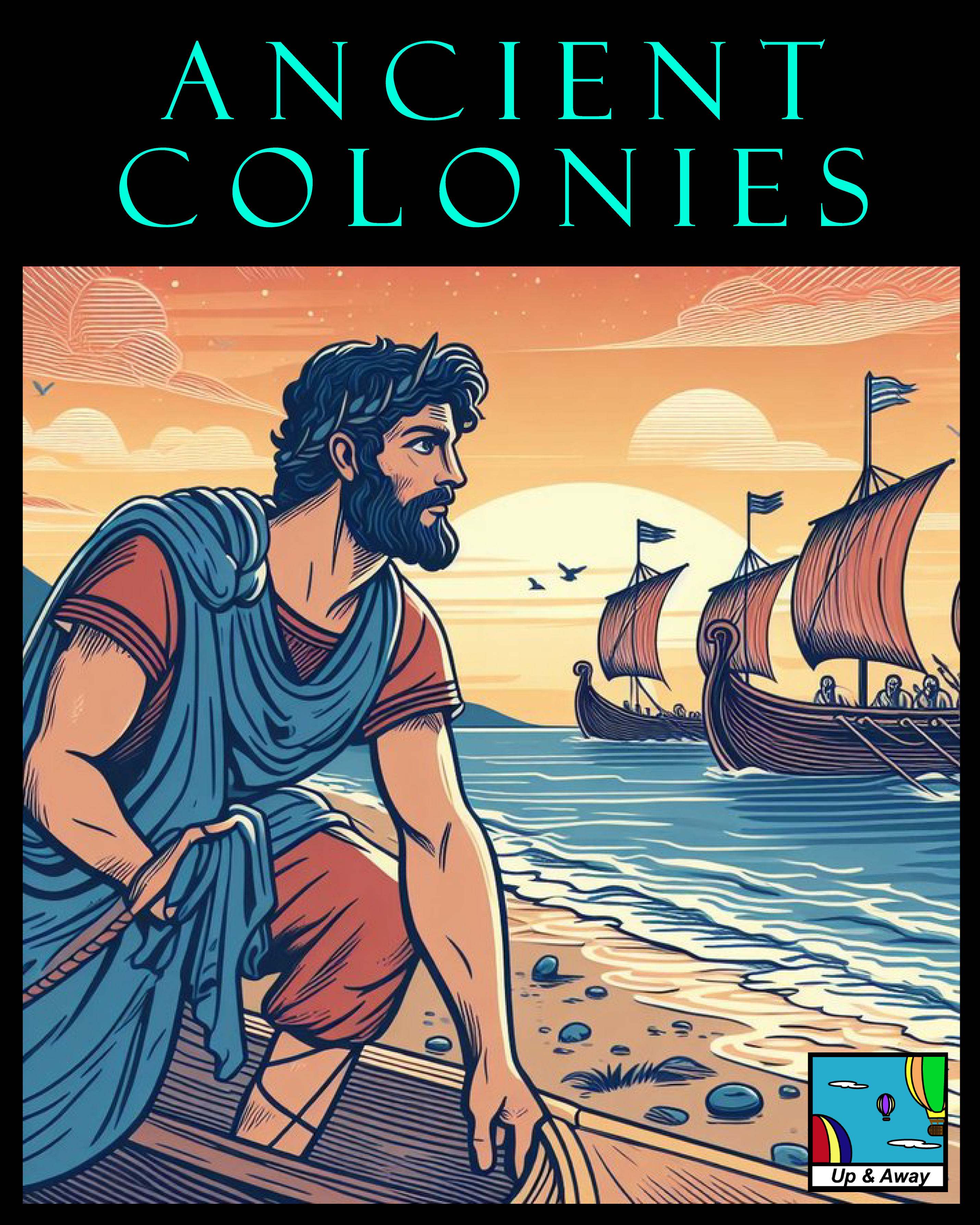
by Rick Heli
I thought it might be fun to write something about my game design projects, something I've never tried before.

|
DESIGNER DIARY
by Rick Heli I thought it might be fun to write something about my game design projects, something I've never tried before. |
March 8, 2017
Testing and development continue. More research, design and development
have gone into this one than any prrevious game. And that makes
sense, because not only is it a political/negotiation game, it covers
a much longer time span and has the possibility of three different forms
of government, not to mention the processes by which one changes these
forms.
Meanswhile, a rendering of how the box may appear:

November 17, 2017
Some pictures of how it's going so far ...
August 24, 2017







|
When this arrives I'll subject it to healthy doses of playtesting and see what we have.
For now I have decided that the entire project as I originally conceived it was just too large. Consequently, I have lopped off the first (Oligarchy and Tyranny) and the last (the coming of Alexander the Great) eras. With it I have removed all the rules and components necessary for changes in government type. The good news is that the game is already fun and interesting enough without these features. But never fear; I will make them available as a separate expansion kit for any who may want them.
Meanwhile, I want to discuss briefly some of the new wrinkles in the
The Republic of Rome™
system.
Factions
Reflecting Athenian society of the time, each Statesman belongs to one of
three classes, and these are all historical, as far as I can determine, anyway.
Aristocrats
live in the city, but have extensive wealth, land holdings and followers.
Merchants/Artisans
tend to live on the coast and are either traders or practice a craft.
Farmers
live on the land, growing wheat, olives, figs and sheep.
Each player takes a faction of a particular type. In a six-player outing
there are two players for each type. Each faction consists of characters
of that type only. Players may only draft characters from their own class,
but can persuade characters of any type. Which could come in handy if you've
picked up an income card that doesn't work with your type.
Persuasion
For a while now I've thought that persuasion is too easy. You can decide you
want to ask someone to join your faction and bang! the persuasion party starts
right up. In real life wouldn't it be a more gradual process? You would express
your interest. They would think about it. You would think more about it. And
then you would see. This kind of "pre-persuasion" is in the game now. When you
want to persuade someone, you start the process one turn in advance. This
affords the target faction some form of early response, including making
the target the faction leader. At which point you may switch targets. But
the target faction may regret changing their faction leader. And in any case,
if players feel the need to pick on a leader, they can only protect one
character in this way.
Aging
We don't have birth years for most of the characters in the game. Thus I
am using relative ages. The at-start characters are all the oldest –
assigned in round-robin fashion – and as new characters enter, they
place their chits in line behind the youngest one. The entire queue is
actually implemented as a loop so you never need to slide chits around.
There are no family cards either. Each character is himself only; once dead
he is out of play forever.
Next Time
I was going to talk about Changes to Government Type and Countering a Tyrant,
but as this has probably gone on far enough, I will save them for next
time. They are only in the expansion kit anyway. I still want to discuss
other topics such as event handling, dealing with the huge Persian forces
and the appetite of the thetes for war.